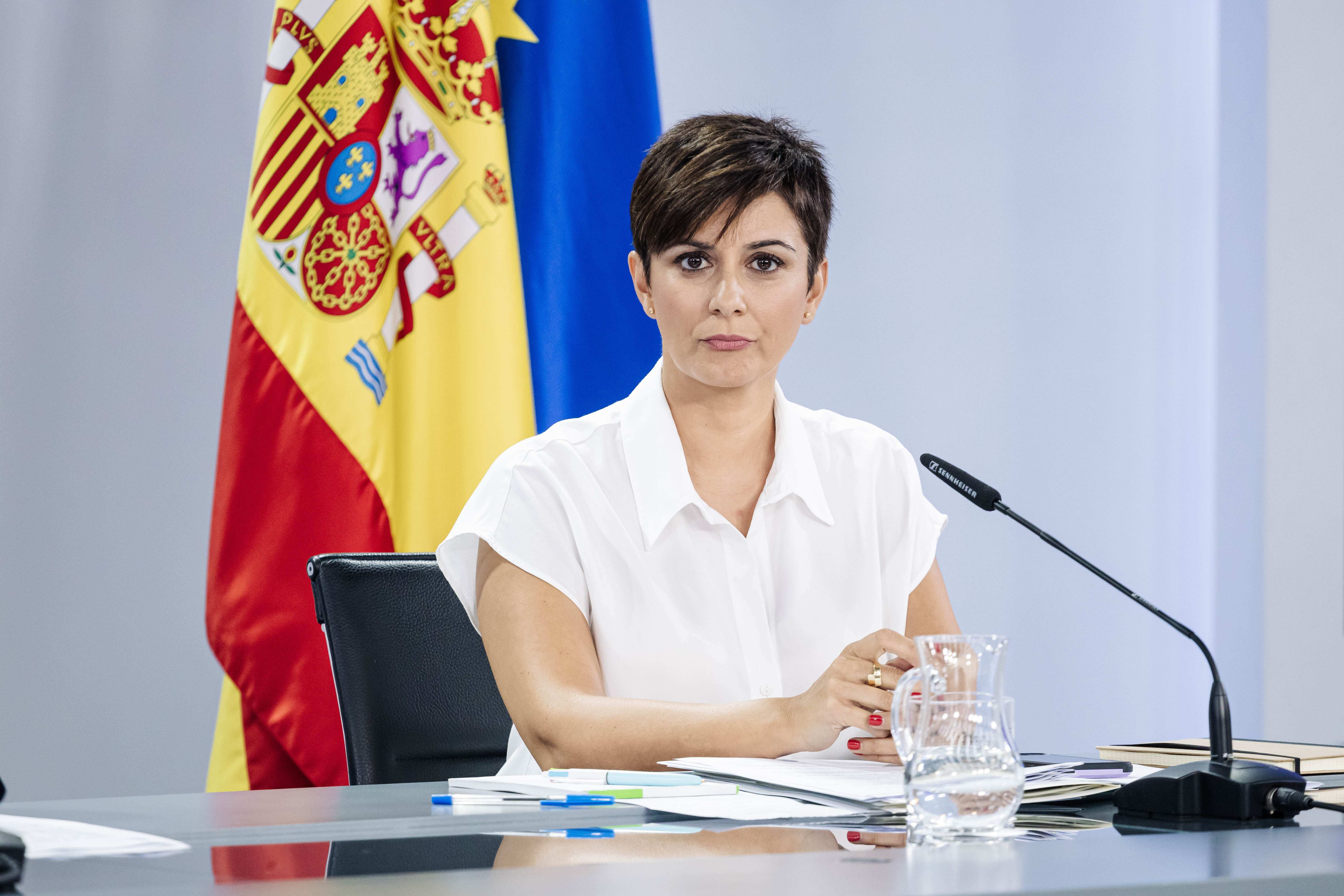A polite change of subject. That was the main tactic of the Spanish government spokesperson this Tuesday when asked about Carles Puigdemont's conditions for negotiating his support for a possible investiture of Pedro Sánchez as head of a new executive. The exiled Catalan president set out a series of clear preconditions in a speech in Brussels this morning, but for now, the Spanish government's strategy is to divert the focus towards the first candidate who will face the Spanish Congress in an investiture vote - that is, People's Party (PP) leader Alberto Núñez Feijóo, who will submit to a difficult test on September 26th and 27th - and, in this way, avoid getting into specifics in response to Puigdemont's demands, which include accepting an amnesty law as a prior step before starting the substantive negotiation. "We are in different worlds with respect to these positions. We are poles apart", asserted the minister spokesperson, Isabel Rodríguez, this Tuesday at noon after the weekly meeting of the Spanish cabinet.
Socialist (PSOE) leader and acting prime minister Pedro Sánchez refuses to come into the spotlight, despite the pressure from Puigdemont, and insists on deferring to the protagonism of Feijóo, selected by Spanish king Felipe VI to be the candidate for investiture. The roadmap laid out in the Moncloa government palace is to wait for the likely failure of the PP, thus gaining time and being able to delay entering the playing field proposed by Together for Catalonia (Junts). And hence, the spokesperson speaks in generic terms and avoids being pinned down. "We will provide specifics, detail and transparency when the head of state formally asks Sánchez to lead the investiture", assured Rodríguez.
Thus, awash in all this vagueness, sources close to Pedro Sánchez emphasize that Puigdemont "is within his rights" in establishing conditions, they respect his initiative, although the same sources are committed to "working with discretion and within the framework of the Constitution". The president-in-exile made it clear which elements, in his opinion, should enter the political negotiation, such as the amnesty law. In this regard, the minister spokesperson Rodríguez drew on one of the Sánchez government's classic phrases to frame the limits: "We have a tool which is dialogue, we have a framework which is the Constitution and we have a goal which is social coexistence".
Accordingly, the Moncloa tirelessly repeats that its model has managed to pacify Catalonia since Pedro Sánchez became the Spanish prime minister, thanks to the pardons of the nine imprisoned leaders, the repeal of the crime of sedition and the reform of the misuse of funds law. At this point, and in the face of critics who say that an amnesty law would be outside the margins of the constitutional framework, the Spanish government asserts vacuously that "it has been proven" that Sánchez "enforced the Constitution throughout Spain". "No one believes that the wolf is coming and that Spain will be dismembered," said Rodríguez.
Puigdemont's speech in Brussels this Tuesday was preceded 24 hours earlier by the meeting between the president-in-exile and the acting second deputy PM and labour minister, Yolanda Díaz, at the European Parliament. Sources from Sánchez's team reiterate that Díaz travelled to Brussels as the leader of Sumar and that "she did not act as deputy PM". "The PSOE has a different way of working", stress the same sources, to distance themselves from Sumar. In fact, following the meeting, the PP leader, Alberto Núñez Feijóo, asked Pedro Sánchez to sack Díaz.

